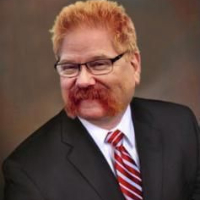 Royal Oak Criminal Lawyers, Michigan
Royal Oak Criminal Lawyers, Michigan
Sponsored Law Firm
-
 x
x

Click For More Info:
-
Shelton Legal Services, PLLC
110 Trealout Dr Ste 201 Fenton, MI 48430» view mapCriminal Defense Someone On Your Side
When it comes to dealing with the law, you shouldn’t do it on your own. You need someone on your side.
800-619-4260
Sponsored Lawyers
1-10 of 48 matches
Civil & Human Rights, Criminal, Employment, Accident & Injury, Business
Co-Counsel on the largest police misconduct verdict in Michigan history and the largest verdict in Michigan this year! On November 3, 2016, a jury in the United States District Court in the Eastern District of Michigan returned a $36,600,000 against Genesee County Deputies for using excessive force against a man arrested for drunken driving. Click the link below for details. This is one of many seven figure verdicts and settlements that I have obtained for my clients in civil rights and personal injury cases. http://www.freep.com/story/news/local/michigan/2016/11/06/jury-awards-36m-verdict-genesee-county-police-brutality-case/93287248/ In addition to civil rights cases, I also specialize in working with small businesses. Prior to becoming an attorney I owned and operated a nightclub in Hamtramck. This experience has led to a lifelong interest in the formation and operation of small businesses. My services are unique because I understand how small business owners need personal and affordable attention from their attorneys. Our legal services include civil rights litigation, business services, commercial litigation, auto accidents, personal injury, criminal law and medical marijuana consulting. Call me at 248-251-0001 to discuss your case today.
(more)Criminal, Divorce & Family Law, Traffic
David Poulton is a practicing lawyer in the state of Michigan. He received his J.D from Michigan State University College of Law in 1998.
(more)Estate Planning, Trusts, Expungement, Car Accident
The Johnson Legal Team PLLC established in 2014, is a reliable law firm based in Birmingham, MI, and operating in the surrounding areas. The firm is committed to providing top-tier legal services, guided by a strong sense of ethics and professionalism. Choose Rodney M. Johnson's firm for dedicated and personalized legal assistance.
(more)Accident & Injury, Civil & Human Rights, Divorce & Family Law, Criminal, Estate
Racine Miller is the managing partner of The Michigan Law Firm, PC. Ms. Miller is an experienced litigator and trial attorney, who can proudly claim to have a near-perfect trial record. While maintaining a separate Michigan civil rights law firm, Ms. Miller works to ensure firm operations, administrative procedures, and firm organizational strategies are in place at The Michigan Law Firm, PC.
(more)Criminal
Gary R. Lazar is a practicing lawyer in the state of Michigan handling criminal defense matters.
(more)Divorce & Family Law, Estate, Criminal
I have been in private practice as an attorney for 22 years. I can assist with all legal needs from criminal, family, bankruptcy, social security and more. With nearly three decades of practicing law in Michigan, our team of expert attorneys has distinguished itself as a top firm in the state. We are guided by three fundamental principles: a commitment to personalized legal advocacy, a dedication to truth, and an unyielding pursuit of our clients’ desired outcomes. At the Whitaker-Payton Justice Center, we believe that your future matters, and we are here to ensure that you get the justice you deserve.
(more)


 Steven Shelton Fenton, MI
Steven Shelton Fenton, MI AboutShelton Legal Services, PLLC
AboutShelton Legal Services, PLLC Practice AreasSpecializations
Practice AreasSpecializations






